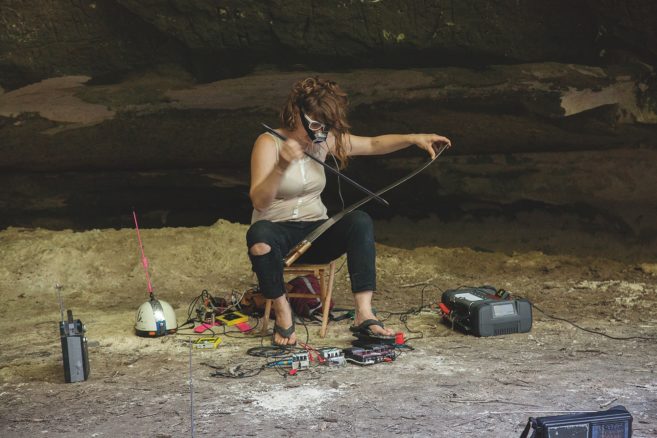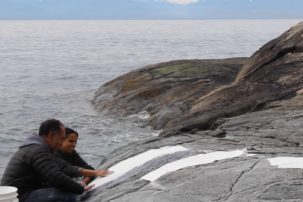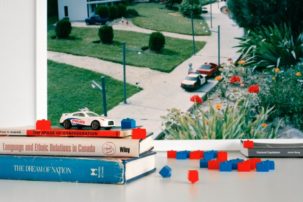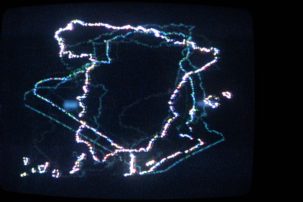The first person Victoria Anderson-Gardner told that they had been selected for the 2020 Glenn Gould Protégé Prize was a police officer on the side of the road just outside of Thunder Bay. The award-winning 23-year-old filmmaker from Eagle Lake First Nation was driving when their caller ID displayed an unmistakable name: Alanis Obomsawin. Normally Anderson-Gardner would never think of answering the phone while at the wheel, but it was a near-deserted road and their filmmaking idol was on the line. Without thinking, they answered their phone.
“She told me that I received this prize and my mind kind of went blank. I asked her, ‘What are you talking about? What do you mean?’ And it took me a moment to process it. Then, as she was telling me more about the prize and we were laughing, I looked in the mirror to my left and there was a police officer driving beside me and he had his lights on and he was trying to wave me down, but my brain was still trying to process the fact [that] I was talking to Alanis and that I had won the prize,” Anderson-Gardner recounts.
Obomsawin, from the Abenaki community of Odanak, was named the 2020 Glenn Gould Prize winner in recognition of her prolific film career spanning five decades, with over 50 documentary films with the National Film Board of Canada focusing on Indigenous Peoples. Along with the $100,000 prize, the winner selects an up-and-coming artist to receive the Glenn Gould Protégé Prize. Obomsawin said that she was moved by Anderson-Gardner’s work and very happy to see a young Indigenous filmmaker taking on the responsibility of not just telling Indigenous stories but really listening to the people in their films.
It was Anderson-Gardner’s film Becoming Nakuset, which won Best Short Film and the Audience Choice Award at imagineNATIVE 2020, that got Obomsawin’s attention. Obomsawin said that Anderson-Gardner really listened to Nakuset in the film. Anderson-Gardner admits that comment blew their mind a little.
“I was super honoured that she even knew who I was. I never thought she would see my work,” says Anderson-Gardner. “Winning the prize really puts things into perspective about the power of the things that I’m creating. It’s getting out there and it’s actually touching people’s lives and impacting them.”
Obomsawin has always been an inspiration to Anderson-Gardner.
“Seeing her, a female Indigenous filmmaker with the amount of films she’s made and the impact that she’s had, inspired me because she showed us that it’s possible [to be a filmmaker]. And the importance of her content really shows that these are stories that need to be told, and we need more Indigenous people to tell them.”
Back on the side of the road, they quickly thanked Obomsawin and vowed to continue the call at a later time—after they dealt with the police. Luckily for Anderson-Gardner the officer was understanding and let them off with a warning as it was their first time ever being pulled over. Shaking with excitement, they returned home to share the news.
Anderson-Gardner is completing a bachelor of fine arts degree at Ryerson University’s School of Image Arts. They are a director and producer working on a variety of projects; along with Becoming Nakuset, they worked on Tenaya and the award-winning film The Hurt That Binds Us. They are also working on a new feature film about a Black teenager who discovers that she has Indigenous heritage, and what that means.
They say that it was learning more about their own Indigenous history and wanting to share it with the world that made them want to be a filmmaker. They hope to be part of a wave of new Indigenous filmmakers who inspire young people in the communities and see themselves reflected in front of and behind the camera.

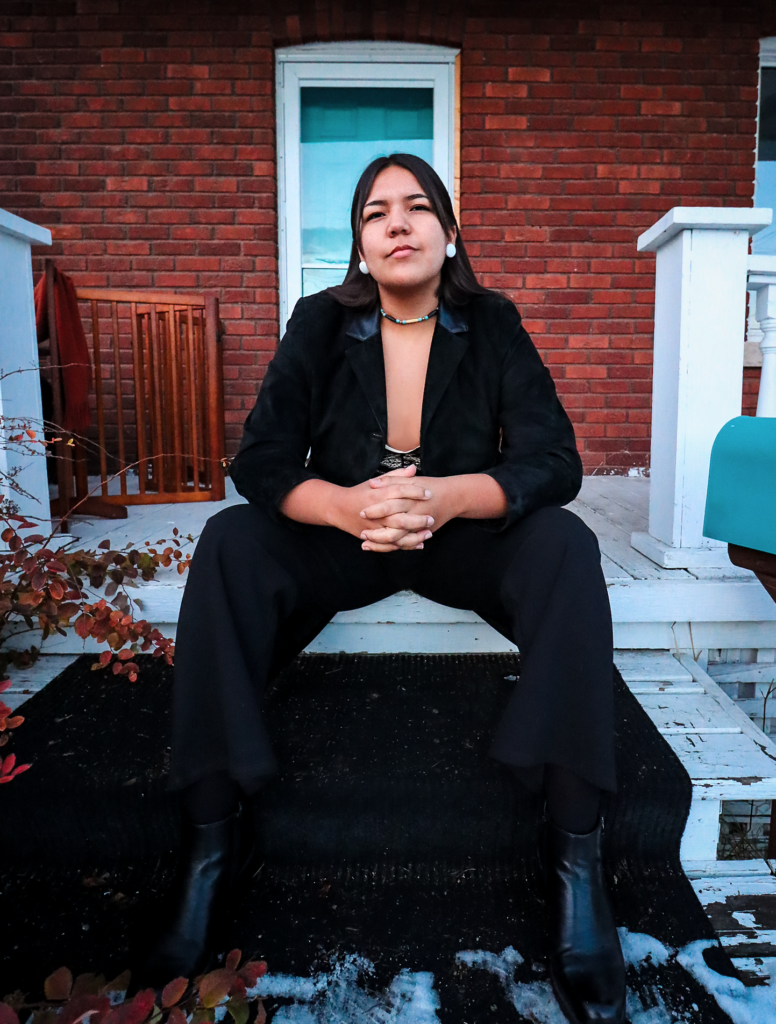 Glenn Gould Protégé Prize winner Victoria Anderson-Gardner. Photo: Morningstar Derosier.
Glenn Gould Protégé Prize winner Victoria Anderson-Gardner. Photo: Morningstar Derosier.
